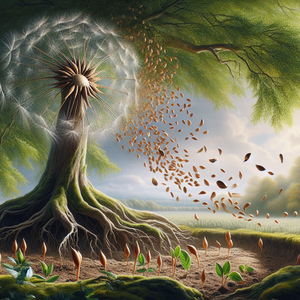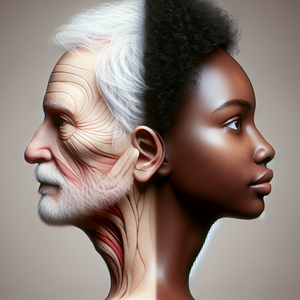The Art of Never Repeating a Joke

For most comedians, refining and reusing jokes is part of the craft. A single joke can be tested, polished, and performed hundreds of times to perfect its timing and delivery. This process ensures that the punchline lands with precision and the audience erupts in laughter. But for those who take on the challenge of never repeating a joke, the goal is different. It’s not about perfection—it’s about spontaneity and the thrill of riding the edge of the unknown. The philosophy behind this approach stems from a belief in the impermanence of humor. A joke, like a moment, is fleeting. Once it’s told, it belongs to the audience, and the comedian moves forward, unburdened by the need to cling to past successes. This perspective mirrors the Zen-like art of letting go, emphasizing the beauty of the present and the creative potential of starting fresh. As comedian Demetri Martin once said, “A joke is a tiny idea.” For those who never repeat jokes, this idea must constantly evolve. It’s an exercise in creativity that pushes the boundaries of what the human mind can produce under pressure, forcing the comedian to find humor in every corner of life.
The Mental Gymnastics of Constant Originality
Creating a single joke can be hard enough. It requires observation, insight, and the ability to distill a complex idea into a few words that spark laughter. Now imagine doing this on the fly, night after night, in front of a live audience. The mental gymnastics involved are staggering. Comedians who take this path often rely on improvisation, a skill that requires lightning-fast thinking and adaptability. They must draw from their surroundings, current events, and even the quirks of the audience before them. A spilled drink, an awkward cough, or a peculiar outfit can all become the seeds of a joke. In essence, life becomes their script, and every moment is a potential punchline. The challenge, of course, is that humor is subjective. What’s funny to one person might fall flat with another. Without the safety net of tried-and-true jokes, these comedians risk more frequent failures. But therein lies the beauty of their craft: the willingness to fail, learn, and try again. Each misstep is an opportunity to refine their skills, and every laugh is a testament to their ingenuity.
The Challenges of Never Repeating a Joke
While the concept of never repeating a joke is exhilarating, it’s also fraught with challenges. First and foremost is the sheer volume of material required. Most comedians spend years developing an hour-long set. For someone who never repeats a joke, that amount of material might only last a week—if not a single night. Additionally, the pressure to constantly innovate can be mentally and emotionally taxing. Writer’s block is a common struggle for creatives, and for these comedians, it’s not just an inconvenience—it’s a showstopper. The fear of running out of ideas looms large, and the risk of burnout is ever-present. There’s also the challenge of audience expectations. Comedy audiences often come with the hope of hearing a comedian’s “greatest hits.” For those who never repeat jokes, this expectation must be managed carefully. How do you convince an audience to embrace the unknown and trust that the humor will deliver, even if it’s unlike anything they’ve heard before?
Lessons in Creativity and Resilience
The art of never repeating a joke offers valuable lessons that extend far beyond comedy. At its core, it’s a celebration of creativity and the endless possibilities of the human mind. It reminds us that originality is not a finite resource but a muscle that grows stronger with use. This philosophy also teaches resilience. In a world that often rewards safety and repetition, the willingness to take risks and embrace failure is a rare and admirable quality. These comedians demonstrate that failure is not the end of the road but a necessary step on the path to success. Finally, the practice of never repeating a joke encourages us to find humor in the everyday. If a comedian can turn a mundane moment into a laugh-out-loud punchline, perhaps we too can learn to see the world through a lens of curiosity and joy.
The art of never repeating a joke is a testament to the boundless potential of human creativity. It’s a challenging, exhilarating, and deeply rewarding pursuit that pushes comedians to their limits and invites audiences to join them on a journey of discovery. Beyond the laughs, it’s a reminder that life itself is a series of fleeting moments, each with its own unique spark of humor waiting to be uncovered.
Improv Comedy Writer
Comedy troupes, late-night TV shows, entertainment agencies
Core Responsibilities
Develop spontaneous, unscripted comedic content for live performances or television segments.
Collaborate with other comedians and actors to create dynamic, audience-driven scenes.
Stay attuned to cultural trends and current events to ensure humor remains fresh and relevant.
Required Skills
Mastery of improvisation techniques and quick thinking under pressure.
Strong communication and collaboration skills to work effectively in a team setting.
Ability to engage with diverse audiences and adapt content in real-time.
Creativity Coach
Freelance opportunities, corporate innovation teams, or educational institutions
Core Responsibilities
Help clients unlock their creative potential through tailored exercises and workshops.
Develop strategies to overcome creative blocks, fostering originality and innovation.
Work with individuals or teams in industries such as design, writing, or entrepreneurship.
Required Skills
Expertise in creative problem-solving and brainstorming techniques.
Strong background in psychology, coaching, or creative arts.
Empathy, patience, and the ability to inspire others to think outside the box.
Stand-Up Comedy Instructor
Comedy schools, community centers, or freelance teaching roles
Core Responsibilities
Teach aspiring comedians the art of joke writing, timing, and stage presence.
Provide constructive feedback on performances and help students refine their craft.
Organize showcases or open mic events for students to practice in front of live audiences.
Required Skills
Extensive experience in stand-up comedy, with a proven track record of live performances.
Deep understanding of comedic structures, audience engagement, and delivery techniques.
Ability to mentor and encourage creativity in students with varying levels of experience.
Content Creator – Offbeat and Niche Topics
Digital media companies, freelance content creation, or self-employment
Core Responsibilities
Develop unique, niche-themed content (e.g., pigeon fashion or micro-hobbies) for blogs, social media, or video platforms.
Conduct thorough research to ensure authenticity and originality in niche subject matter.
Build and engage a loyal audience by creating quirky, highly shareable content.
Required Skills
Exceptional storytelling skills with a flair for humor and creativity.
Knowledge of digital marketing tools, SEO, and social media trends.
A passion for exploring and popularizing unconventional topics.
Humor Consultant for Corporate Training
Corporate consulting firms, HR departments, or as a self-employed consultant
Core Responsibilities
Design and deliver humor-infused workshops to enhance workplace communication and morale.
Use comedic elements to make training sessions on leadership, teamwork, or conflict resolution engaging and memorable.
Tailor content to align with company culture and industry-specific needs.
Required Skills
Strong public speaking and performance skills, with a knack for blending humor and education.
Experience in corporate training, HR, or comedy performance.
Ability to assess organizational challenges and inject humor to improve employee engagement.


